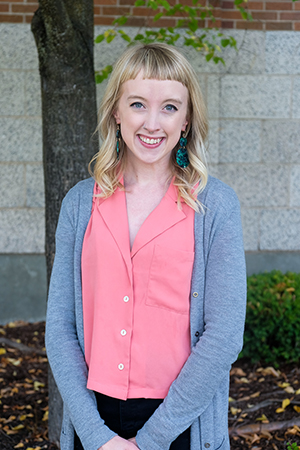
Sawubona! The customary isiZulu greeting. Though colloquially regarded to mean “hello,” the word directly translates to, “I see you.” There is such power and grace in beginning an exchange in this way, an acknowledgment of being present with one another.
I spent my 23rd year living in the Zulu township of Ngwelezane, in KwaZulu-Natal, South Africa. I was spending a year in service through the Lutheran Church, assisting social workers at a school nearby. The moment I arrived in my new home, my host mother Mbali began to teach me as many isiZulu words as she possibly could. South Africa was hardly two decades out of the brutal Apartheid regime, and Mbali intended to disrupt the colonial notion that other cultures should be the ones to adapt to English and Western society. First and foremost, I learned “Sawubona.” Hello. I see you. In that greeting, and continuously throughout the year, Mbali taught me the power of seeing one another.
To be seen is to have one’s needs and desires be valued and understood. To be seen is to pursue passion, and to have the freedom to make autonomous decisions. To be seen is to walk through life together, side by side, sharing in what this world has to offer. I am seen when I play the cello, making music with friends. I am seen through subversive comedy, through laughing together, through hours and hours of television. I am seen in the mountains and the trees. Adventuring around the Pacific Northwest, sleeping under the stars. My home. I am seen in my community. I am seen through the family I was born into, and the family I have chosen. Through standing in solidarity with others. I am seen by the people I love.
What a privilege it is to be seen. And as a privilege, it demands to be questioned. Whom is society overlooking? I continue to see the systemic suppression and silencing of many people as I’ve worked in public policy, interning in the State Senate and working in legislative advocacy. I’ve seen liberty stripped from those who’ve been incarcerated, and from those who have had their reproductive freedom taken away. I aim to be an advocate for those who have not been seen, who have been overlooked, ignored, or marginalized.
Laws can protect and preserve, ignore and neglect, empower and inspire, suppress and marginalize. Interpreting meaning from the word of law ebbs and flows through generations, cultures, contexts, and those given the honor to interpret it. Laws regarding food assistance determine who eats and who does not. Zoning laws decide who is kept out and who is allowed in. The difference is who is seen when the decision is made, who is valued when policy is drafted, who is understood when codes are changed. It’s a matter of interpretation.
Interpretation is also the space between “I see you” and “hello.” It does not seem too wide of a space, but it can make all the difference. I am so excited to be a part of the Thomas More Program and to pursue a legal career rooted in advocacy, service, and community.
Sawubona. I see you. What follows this greeting? One person standing before another, with needs, dreams, ambitions, stories, and love. We are here together. We must see one another.
Ngikhona. I am here.
